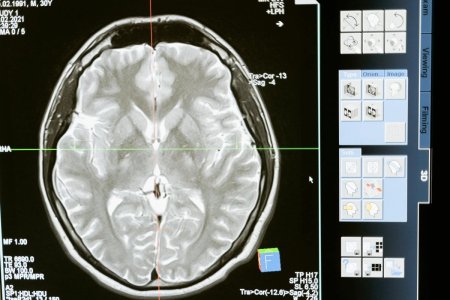Protect your brain: Are you at risk as US dementia cases set to skyrocket?
By
Veronica E.
- Replies 0
Have you ever stopped to think about your brain’s health as you get older? It’s easy to focus on the aches and pains that come with aging, but what about your memory and cognitive abilities?
A recent study is sounding the alarm: the number of people living with dementia in the US is expected to double by 2060.
That's a lot of people—and chances are, you or someone you know could be at risk.
So, how can you protect your mind and stay sharp as the years go by? Let’s take a closer look at the study’s findings and what it means for all of us.

Understanding the Risk
According to a groundbreaking study from NYU Langone Health, led by Dr. Josef Coresh, the risk of developing dementia is higher than many of us realize.
After the age of 55, men face a 35% chance of developing dementia, while women face an even greater 48% risk. On average, the risk is 42%. This means that nearly half of us may face cognitive challenges as we age.
Dr. Coresh’s research reveals that new dementia cases are projected to increase from 514,000 in 2020 to a staggering 1 million by 2060.
Why? Our aging population plays a major role, with 58 million Americans currently over the age of 65. However, lifestyle factors such as high blood pressure, diabetes, obesity, unhealthy diets, and sedentary habits are also contributing to this rise.
Who Is Most at Risk?
Dementia doesn’t affect everyone equally. Women, who generally live longer than men, face a higher risk because they have more time for dementia to develop. In fact, seniors over 75 are at an especially high risk, with a 50% chance of developing dementia.
Black adults are also disproportionately impacted, often due to barriers like limited access to education, healthy food, and healthcare.

Additionally, individuals with the APOE 4 gene— a known genetic risk factor for Alzheimer's disease— face a heightened risk.
The study’s findings, published in Nature Medicine, suggest that previous research may have underestimated the risk of dementia due to factors like underreporting and inadequate health monitoring, particularly in minority populations.
Taking Action for Cognitive Health
While there is no cure for dementia yet, early detection can make a big difference. Catching the condition early gives individuals and caregivers the opportunity to plan ahead and manage it more effectively.
Dr. Coresh’s team analyzed over three decades of data, showing that dementia is often diagnosed around the age of 81, but 17% of people are diagnosed before 75.
So, what can we do to lower our risk? Dr. Coresh offers a few key recommendations:
While the rising number of dementia cases is a cause for concern, it’s important to remember that we have the power to take action. By staying informed, taking care of our physical and mental health, and addressing risk factors early, we can all work toward a healthier, sharper future.
The journey may not be easy, but the choices we make today can have a lasting impact on our cognitive well-being!

Have you or a loved one been affected by dementia? What lifestyle changes have you found beneficial for maintaining cognitive health? Share your stories and tips in the comments below!
A recent study is sounding the alarm: the number of people living with dementia in the US is expected to double by 2060.
That's a lot of people—and chances are, you or someone you know could be at risk.
So, how can you protect your mind and stay sharp as the years go by? Let’s take a closer look at the study’s findings and what it means for all of us.

A growing concern for aging populations and future generations. Image Source: Pexels / MART PRODUCTION.
According to a groundbreaking study from NYU Langone Health, led by Dr. Josef Coresh, the risk of developing dementia is higher than many of us realize.
After the age of 55, men face a 35% chance of developing dementia, while women face an even greater 48% risk. On average, the risk is 42%. This means that nearly half of us may face cognitive challenges as we age.
Dr. Coresh’s research reveals that new dementia cases are projected to increase from 514,000 in 2020 to a staggering 1 million by 2060.
Why? Our aging population plays a major role, with 58 million Americans currently over the age of 65. However, lifestyle factors such as high blood pressure, diabetes, obesity, unhealthy diets, and sedentary habits are also contributing to this rise.
Who Is Most at Risk?
Dementia doesn’t affect everyone equally. Women, who generally live longer than men, face a higher risk because they have more time for dementia to develop. In fact, seniors over 75 are at an especially high risk, with a 50% chance of developing dementia.
Black adults are also disproportionately impacted, often due to barriers like limited access to education, healthy food, and healthcare.

With longer lifespans, women are more likely to experience the effects of dementia. Image Source: Pexels / Kindel Media.
Additionally, individuals with the APOE 4 gene— a known genetic risk factor for Alzheimer's disease— face a heightened risk.
The study’s findings, published in Nature Medicine, suggest that previous research may have underestimated the risk of dementia due to factors like underreporting and inadequate health monitoring, particularly in minority populations.
Taking Action for Cognitive Health
While there is no cure for dementia yet, early detection can make a big difference. Catching the condition early gives individuals and caregivers the opportunity to plan ahead and manage it more effectively.
Dr. Coresh’s team analyzed over three decades of data, showing that dementia is often diagnosed around the age of 81, but 17% of people are diagnosed before 75.
So, what can we do to lower our risk? Dr. Coresh offers a few key recommendations:
- Keep blood pressure in check.
- Get regular exercise.
- Prioritize quality sleep.
- Address hearing loss—only a third of Americans with hearing loss use a hearing aid.
- Push for greater access to affordable hearing aids and healthcare policies that address racial inequities.
The journey may not be easy, but the choices we make today can have a lasting impact on our cognitive well-being!
Key Takeaways
- A study by NYU Langone Health suggests the risk of developing dementia is significantly higher than previously thought, with an average risk of 42% after the age of 55.
- The number of new dementia cases in the US is predicted to double by 2060, driven by an aging population and lifestyle factors.
- Women, seniors over 75, Black adults, and carriers of the APOE 4 gene are identified as groups most at risk for developing dementia.
- While there's no cure for dementia, early detection and lifestyle changes, such as managing blood pressure and getting adequate exercise and sleep, can help lower the risk.
Have you or a loved one been affected by dementia? What lifestyle changes have you found beneficial for maintaining cognitive health? Share your stories and tips in the comments below!






